It's A Sin star Nathaniel Curtis on the show's legacy and queer resilience
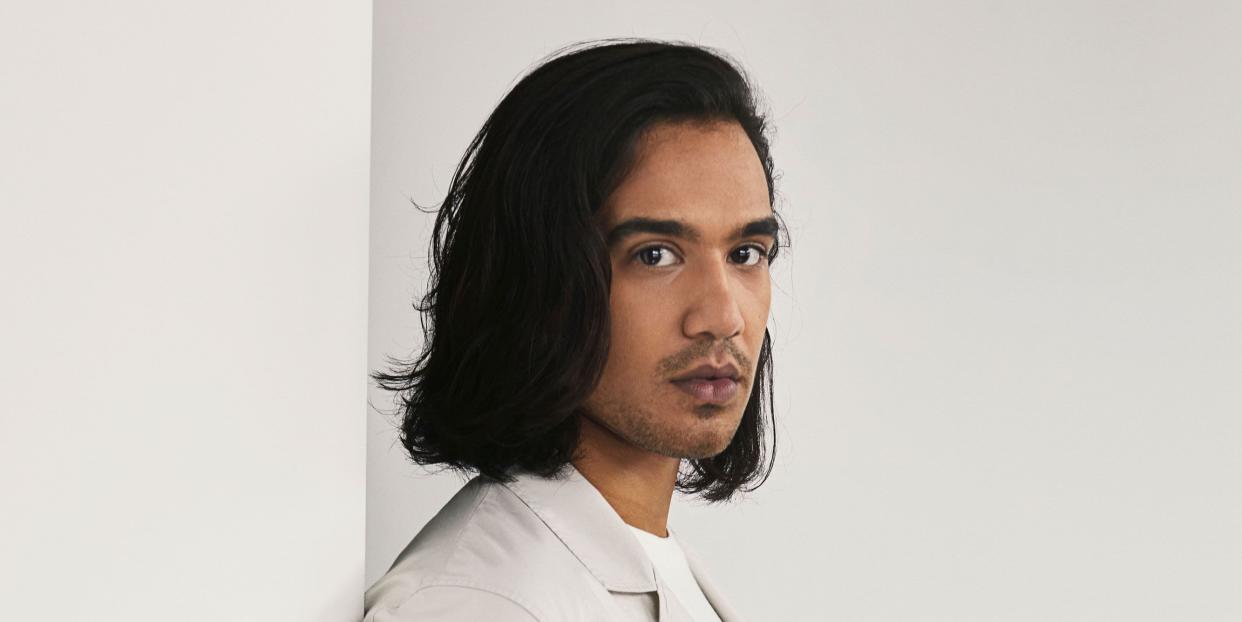
Rainbow Crew is an ongoing interview series that celebrates the best LGBTQ+ representation on screen. Each instalment showcases talent working on both sides of the camera, including queer creatives and allies to the community.
Next up, we're speaking to It's A Sin star Nathaniel Curtis.
When we last spoke to Nathaniel Curtis, he told us that resilience is the most important thing that fans can take away from It's A Sin. Specifically, "the resilience of young people who know what they're fighting for."
And he's right. Some things are better now, but many of the struggles that the LGBTQ+ community faced back then are still being fought by queer people today, including Nathaniel himself.
"Despite being 6ft5 and brown and my long hair and being queer – openly queer, as well – I think that despite being turned down for so many things, I’m proud that I've kept going. Because there were moments that I didn't, times I didn’t want to."
This resilience can be seen in Nathaniel's role on It's A Sin too. Even when the world was against him, Ash kept going and helped carve out a joyous space for his chosen family. More than perhaps anything else, that's the most important message this show can leave behind, that we are strong as a community and that we are deserving of love.
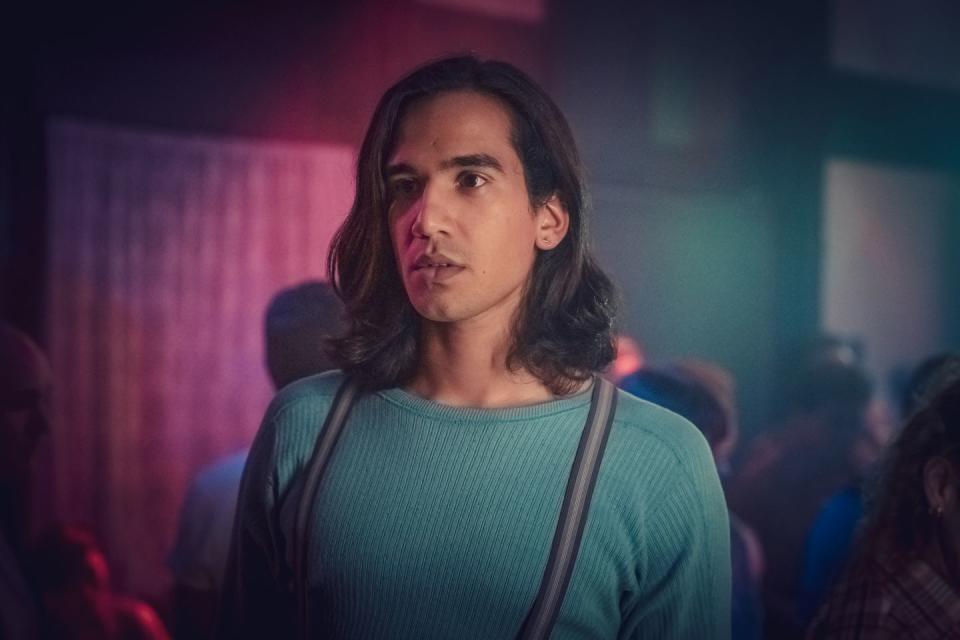
Digital Spy caught up with Nathaniel to discuss the enduring impact of It's A Sin and what lessons the industry can learn from its legacy.
A few months have passed since It’s a Sin first aired. What’s life been like for you since then?
It’s amazing. But it’s weird being recognised in the gym, and people giving you coffee for free, which I’m here for. But, yeah, I think seeing the impact of the show has been amazing. Because obviously when we spoke last, it was just out?
It might have even been a couple of weeks before, in January
Oh my God. In which case, it’s the impact of the show – none of us expected it. I was speaking to someone yesterday, and they said, "The show is a movement." I was like, "What? OK." That's fantastic.
We’re glad that our work can mean so much to people, and that it’s been able to open conversations, and it’s given people this pride, this yearning to learn more about what happened, and what can be done.
So I think, yes, life is good [laughs]. But it happened so quickly. I turned around, and five seconds later, I had blue ticks, and people were talking about it, and talking to me like they knew me, like they wanted to know me. And that was quite weird, because I’ve met me, and I’m very normal [laughs].
Are there any particularly memorable or heart-warming responses from fans that you'd like to share?
I had someone who works with my mum message me and say thank you for the conversation that it brought to his family. He came out to his family years ago, and I don’t think it went down particularly well. But after the show came out, he’d spoken to his mum about it. They were able to talk very openly about why they were concerned.
Also, parents of people my age are the ones that lived through it. They’re the ones that kind of see – if they don’t know much about it, they see being queer as a death sentence, because that’s what they saw. And my eyes were opened up to that perspective as a result of the show as well.

But then this guy just said, "Thank you for this, and also your mum’s really proud of you. She tells everyone at work." [laughs]
So I think that opening up the conversation for someone who I do know of – I don’t think I’ve ever met him – but someone that who I know of, who just seems like such a lovely man... because it was so close to home, I think that’s one that’s really stuck with me.
Do you remember the first time that you saw queer representation on screen? Was it a positive or negative experience?
It wasn’t positive in my recollection. What is that show? It’s set in a shop. I think it’s a '70s show. The way that it was seen in my house – my childhood home – was not great. Obviously, I wasn’t alive in the '70s. But when I saw it, I was quite young. I saw that it was funny, that he was laughed at for it.
Watching how representation has changed over the years has been so important. It’s become more positive, and I think it’s also because I have become more positive about it over the years. I’ve been able to educate myself through meeting friends, through reading about characters in books, which was always my first port of call, and seeing how things have changed in comic books, in films and on TV.
On the flip-side of that, can you share any queer stories that have helped you or inspired you in some way?
There is a play called The Little Dog Laughed by Douglas Carter Beane. It’s about a film star who ends up with a rent boy. I absolutely love the show, and actually ended up using a monologue from it which got me into drama school. But I remember, there’s a bit in it where the film star realises that he’s falling in love with a rent boy and vice-versa. It’s a duologue. They’re saying, "I have absolutely no idea what’s going on, but I’m happy."
When I began to discover and explore my sexuality later down the line, I was just thinking, "I have absolutely no idea what’s happening." But then I had to ask myself that question of: "Am I happy?" I think that the simple answer wasn’t always yes. But when the answer became a solid yes, I was like, "OK." In which case, "Chill your beans, Nathaniel. It’s going to be alright."
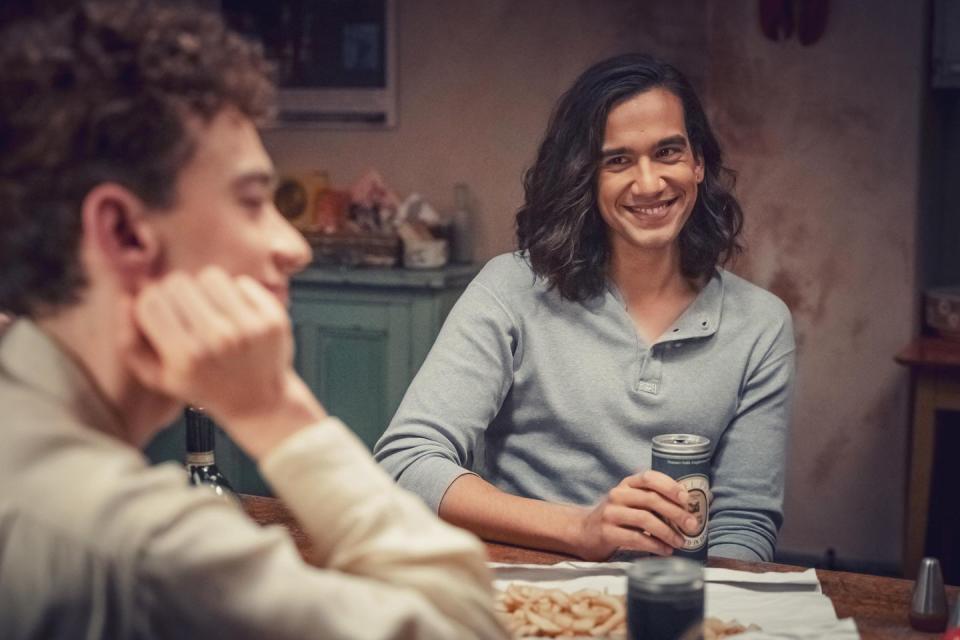
What are your thoughts on authenticity when it comes to queer storytelling?
As someone who didn’t see a lot of himself represented on screen – even until recently – it’s a conversation that I find myself having a fair bit. I find myself in the in-between, in that I’m of dual heritage. I’m Indian and I’m English, and I’m somewhere in between that. I have had relationships with women. I have had relationships with men. I identify as queer. I sit in that in-between as well.
It’s a Sin tells a story of a generation who were absolutely brutalised, not only by this massive disease that just ruined – ruined! – everything, but then also the media; and we all know that the media are still not great all the time.
When you think about Colin, who got fired for being gay; when you think of Ash, who was tortured at work for being gay; when you think about all the phone calls that Jill had to take from these men who were terrified about coming out to people…
People who know what that’s really like are the ones to tell that story. Not to say that, obviously, straight people can’t give beautiful performances. You think about Carol, and Cate Blanchett with Rooney Mara and Timothée Chalamet and Tom Hanks in Philadelphia. All these beautiful people. But I think it’s the respect. Even if you were to have straight people play these roles, it has to be done with respect.
What do you want to see more of in queer storytelling?
Obviously, when it comes to shows about queer history, the struggle has always been more publicised than the joy behind it. But, you know what? I absolutely love being the way I am. I am surrounded by love, and people who are lovely and lovable.
Especially for the younger generation, being able to see that actually, it doesn’t matter who you are or what you look like or how you identify or who you love – you are worthy of love. You are capable of love. And you deserve to be loved.
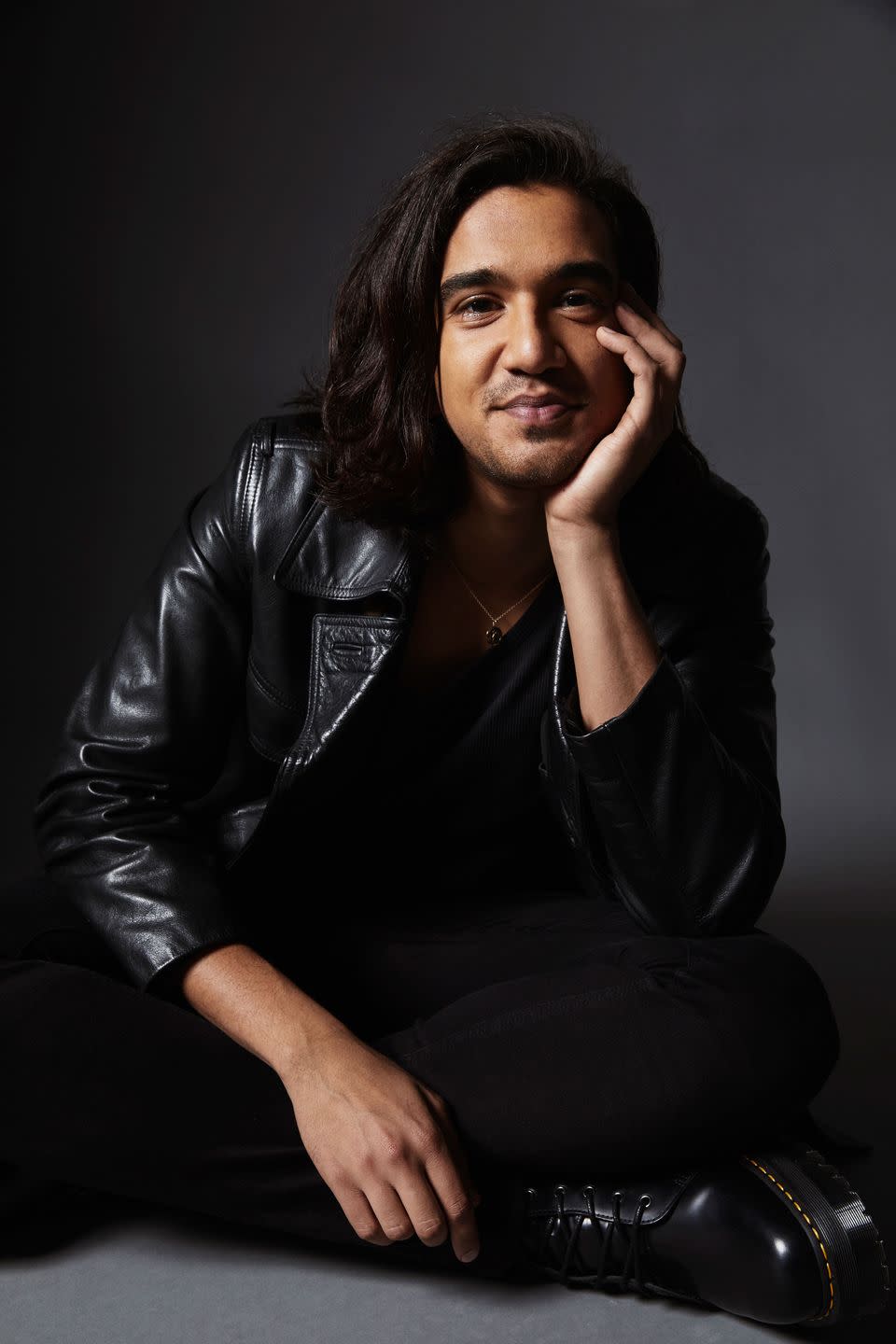
That’s part of why It’s a Sin worked so well. You just saw a group of people where being gay wasn’t a character trait; it was just who they were inherently. It showed them having a damn good time. It showed them going out and dancing and having sex. Getting up and having breakfast in the morning. It showed the normality of it.
That’s something I would love to see. And also, bring us gay superheroes. Give us a story of the Trojan War where Achilles and Patroclus are actually lovers. Get more gay Disney characters. Give us, I think, the opportunity. That’s one thing that I’d love to see.
What should the industry do to improve things when it comes to LGBTQ+ representation?
I think the imbalance needs to be addressed. Once that changes, then there will be more scope for other things to change. With the imbalance being: openly queer actors are not seen as equal to straight actors. They are not given the same opportunities. They are not given the same roles. They are not given the same positive publicity.
You have a straight actor play a gay role, and throw them an Oscar. You have a gay actor play a straight role, and it’s like, "Who are they trying to kid?" That’s down to the media, in my opinion. That imbalance needs to be addressed. And then there’s scope for more changes to be had. But there needs to be an equality. It’s slowly getting there. But then there are lots of inequalities in the industry, unfortunately, which aren’t getting there.
Also, stop writing gay as a character trait. Being queer is one of the least interesting things about me, in my opinion. I hope. Let’s stop seeing queer people as a separate species. They are an actor. That’s what they do.
Once you see people as just being an actor as a baseline – not a queer actor, not a straight actor, not a trans actor, not a Black actor, not an actor of colour. Start seeing actors as actors. That’s what we do. Then give us the chance to prove if we can do the role or not.
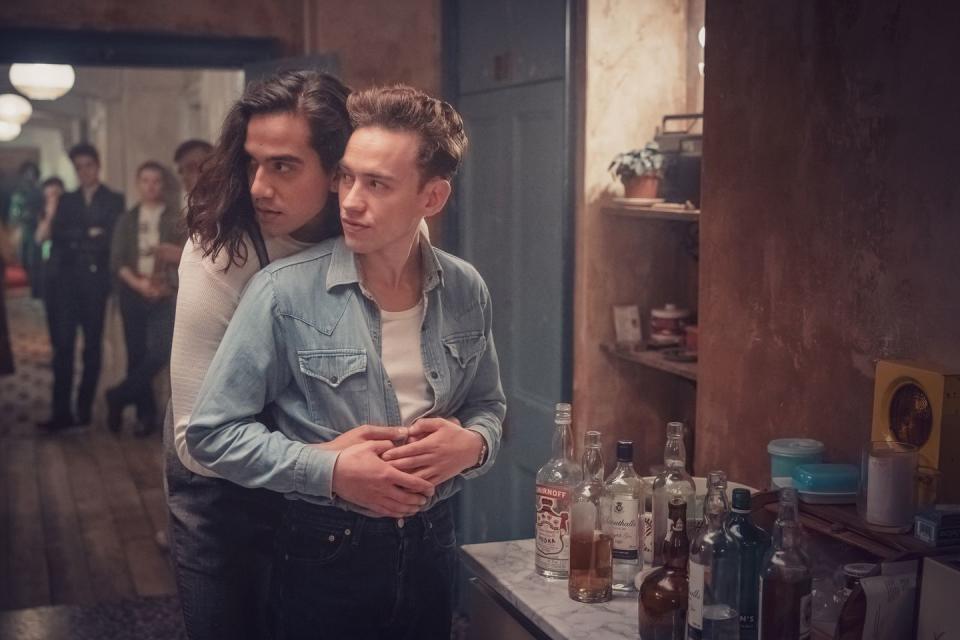
What advice would you give to young queer people navigating their identity in 2021?
One thing I’ve learned that’s incredibly important is that family doesn’t stop at blood. Some people are very, very fortunate to have every member of their family be very supportive. But not everyone has that. And that’s OK, because you are going to find people out there who love you unconditionally for who you are.
Also, it’s OK to struggle with your sexuality. As long as it doesn’t affect other people, it’s OK to be like, "I don’t know if I identify as gay, or bi, or non-binary." It doesn’t matter where you fall in that, but there is a whole family out there who are going to support and love you. If it’s hard, it’s going to be OK. If it’s OK, at points it’s going to be hard.
It's a Sin is now available to stream in its entirety on All 4.
This month, Digital Spy Magazine counts down the 50 greatest LGBTQ+ TV characters since the Stonewall riots. Read every issue now with a 1-month free trial, only on Apple News+.
Interested in Digital Spy's weekly newsletter? Sign up to get it sent straight to your inbox – and don't forget to join our Watch This Facebook Group for daily TV recommendations and discussions with other readers.
You Might Also Like

